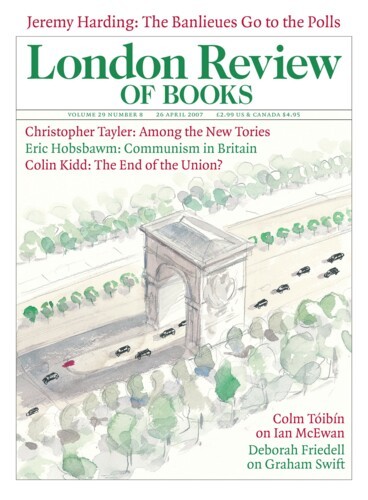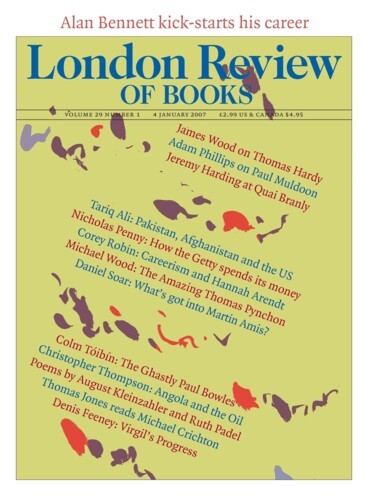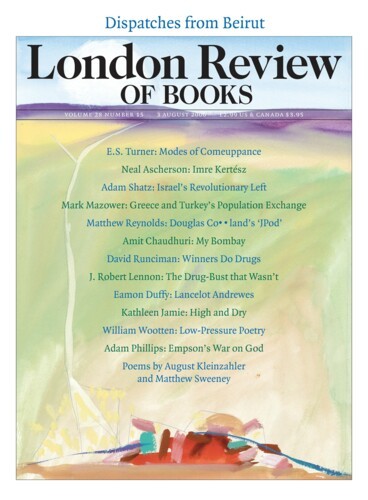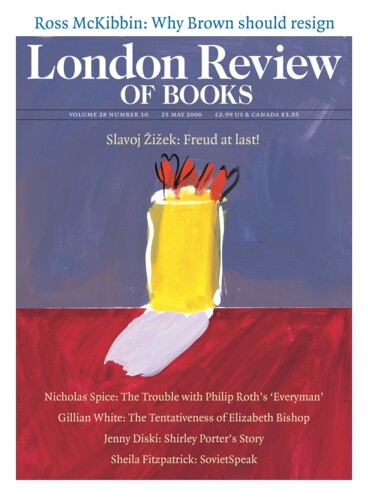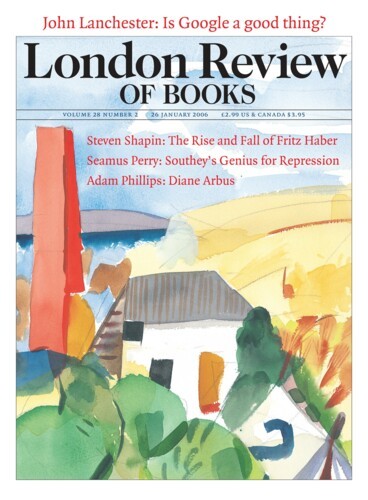What Can You Know? Daniel Mendelsohn’s The Lost
Adam Phillips, 26 April 2007
‘Tell me who you desire and I will tell you your history’ has become the shibboleth of post-Freudian autobiography, in which the lust for personal history has overridden the other, older kind of lust. Since everyone has a history it is now assumed that everyone has an autobiography in them. In this new solipsism we don’t want other people, we want to ‘recover’,...
